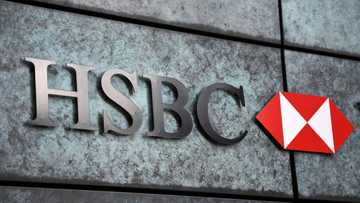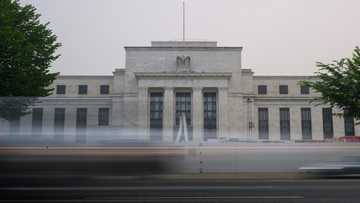Eurozone economy shrinks in third quarter, inflation falls further

Source: AFP
Economic growth in the eurozone contracted in the third quarter, data showed Tuesday, hit by the European Central Bank's painful rate-hiking campaign and Germany's weakening economy, but inflation slowed in October.
The EU's official data agency said the 20-country single currency zone's economy shrank by 0.1 percent over the July-September period, after recording only 0.2 percent growth in the second quarter.
The figures reflect the difficulties facing the eurozone including the cost-of-living crisis and concerns over the flagging demand in the global economy.
Although the eurozone has weathered the shocks from the coronavirus pandemic and the war in Ukraine, fears are growing over the economic effects of the Hamas-Israel war.
The data published by Eurostat on Tuesday showed, however, the whole 27-country European Union economy -- including members who do not use the euro -- fared better, growing by 0.1 percent in the quarter.
Germany's economy shrank by 0.1 percent in the third quarter, while Austria also recorded a contraction of 0.6 percent.
France, the EU's second biggest economic powerhouse, only grew by 0.1 percent, and Italy's economy stagnated in the third quarter, the data showed.
Germany has been hit hard by elevated energy costs, a sluggish manufacturing sector and high interest rates designed to tame inflation.
Consumer price inflation in the eurozone has slowed to 2.9 percent, Eurostat data for October showed Tuesday, the lowest rate since July 2021 when it reached 2.2 percent.
The figure is down from 4.3 percent in September and lower than predicted by analysts who had expected inflation to remain above three percent.
The inflation rate is also now closer to the ECB's two percent target. Despite higher borrowing costs, the ECB remains steadfast behind its mission to tame red-hot inflation.
But signs of weakness in the economy as well as ebbing price pressures prompted the ECB to leave interest rates unchanged earlier this month after raising them in each of their previous 10 meetings.
"Continued deflation in energy prices and easing food price inflation were the main drivers," Tomas Dvorak, senior economist at Oxford Economics said, adding that he expected inflation to "dip below target" in 2024.
"We think the ECB will start with rate cuts already" as early as in April, he added.
Inflation slows
Eurozone inflation is down from its peak of 10.6 percent in October last year following Russia's invasion of Ukraine which sent energy prices spiralling.
Core inflation, which strips out volatile energy, food, alcohol and tobacco prices, also slowed to 4.2 percent in October from 4.5 percent in September, Eurostat said.
Core inflation is the key signal for the ECB.
Belgium and the Netherlands was the only countries where consumer prices fell, by 1.7 percent and 1.0 percent respectively in October, according to Eurostat figures.
Energy prices in the eurozone fell much further in October, sinking by 11.1 percent on the back of a drop of 4.6 percent the previous month.
The rise in food and drink prices also slowed down, reaching 7.5 percent in October compared with 8.8 percent in September, according to Eurostat.
New feature: Сheck out news that is picked for YOU ➡️ click on “Recommended for you” and enjoy!
Source: AFP




